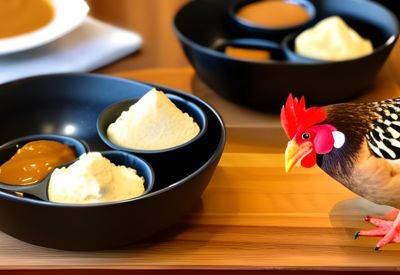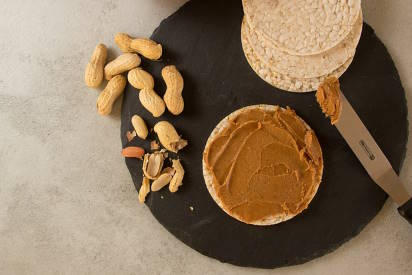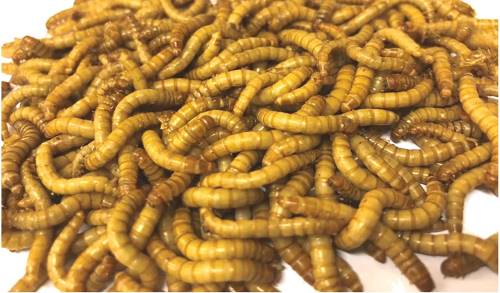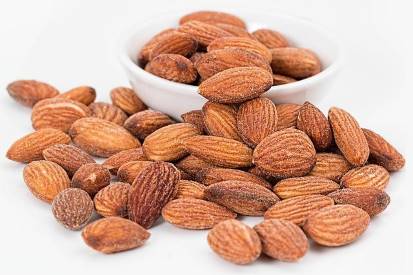Picture this: You’re in your kitchen, making yourself a scrumptious peanut butter sandwich, when you glance out the window and see your chickens happily pecking away in the yard. Suddenly, you wonder, can chickens eat peanut butter? It’s a question many backyard chicken keepers have pondered, and today we’re going to dive into the answer.
The short answer is yes, chickens can eat peanut butter, but with some important caveats. It’s essential to understand the nutritional content of peanut butter, the potential benefits and risks for your feathered friends, and how to feed it to them safely. So, grab your favorite peanut butter jar and let’s get cracking on this nutty topic!
In the following sections, we’ll discuss the nutritional value of peanut butter and how it can benefit your chickens. We’ll also look at potential risks and explore alternative protein sources to help you make an informed decision about whether or not peanut butter belongs on your chickens’ menu. So, let’s embark on this deliciously informative journey together!

The Nutritional Content of Peanut Butter
You’ve probably heard that peanut butter is a great source of protein, but did you know it’s also packed with healthy fats, vitamins, and minerals? Let’s break down what’s actually in that jar of creamy goodness.
Protein and fat composition
Peanut butter is loaded with protein, which is essential for building strong muscles and maintaining overall health. It’s also rich in unsaturated fats, which are the “good” fats that help lower cholesterol levels and reduce the risk of heart disease.
Vitamins and minerals in peanut butter
This tasty spread is also a treasure trove of nutrients, including essential vitamins and minerals like vitamin E, magnesium, potassium, and zinc. These nutrients play an important role in maintaining a healthy immune system, nerve function, and overall cell health.
The role of fiber in a chicken’s diet
While peanut butter isn’t exactly a fiber powerhouse, it does contain a modest amount of this important nutrient. Fiber helps maintain a healthy digestive system and can even help prevent certain health issues, like obesity and heart disease.
[ChickenAffiliate]
Potential Benefits of Peanut Butter for Chickens
Alright, so peanut butter is pretty great for humans, but what about our feathery friends? Let’s explore some potential benefits of feeding peanut butter to chickens.
Energy source for laying hens
Laying hens have a high energy demand, and peanut butter can help meet that need. The healthy fats found in peanut butter are an excellent source of energy, which can help keep your hens producing those delicious eggs.
Boosting protein intake for muscle development
As we mentioned earlier, peanut butter is a great source of protein. Chickens, like all animals, need protein to build and maintain strong muscles. Offering peanut butter as an occasional treat can help supplement your chickens’ protein intake, ensuring they stay strong and healthy.
The role of healthy fats in feather health
You may not have realized this, but a chicken’s feathers are largely made up of fats. Those healthy unsaturated fats found in peanut butter can contribute to maintaining shiny, healthy feathers for your flock.
Potential Risks of Feeding Peanut Butter to Chickens

Before you start slathering peanut butter all over your chickens’ feed, it’s important to consider some potential risks associated with this tasty treat.
The presence of aflatoxins in peanuts
One concern when feeding peanut butter to chickens is the possible presence of aflatoxins, which are toxic substances produced by certain molds. Peanuts can sometimes be contaminated with these molds, and aflatoxins can cause serious health issues in chickens if consumed in large quantities.
High fat content leading to obesity and related health issues
While the healthy fats in peanut butter can be beneficial, too much of a good thing can be bad. Chickens consuming too much fat can become obese, which can lead to a whole host of health problems, including heart disease and decreased egg production.
Choking hazard due to peanut butter’s sticky texture
We all know how sticky peanut butter can be, and chickens are no exception. If you give your chickens a big glob of peanut butter, they could potentially choke on it. So, it’s essential to feed peanut butter to your chickens safely, which brings us to our next section.
Safe Ways to Feed Peanut Butter to Chickens

If you’ve weighed the pros and cons and still want to treat your chickens to some peanut butter, here are some safe ways to do it.
Mixing peanut butter with other ingredients
Instead of feeding your chickens pure peanut butter, consider mixing it with other ingredients like oats, seeds, or fruits. This not only dilutes the sticky texture but also provides your chickens with a more balanced and varied treat.
Spreading a thin layer on a suitable surface
To avoid the choking hazard, try spreading a thin layer of peanut butter on a flat surface, like a piece of cardboard or a large leaf. This allows your chickens to peck at the peanut butter safely and enjoy their treat without the risk of choking.
Creating peanut butter-based treats for chickens
Get creative and make homemade treats for your chickens using peanut butter as a base. You can mix it with ingredients like seeds, dried fruits, or crushed eggshells, and then form them into small, bite-sized balls or patties. This is a fun and safe way to offer peanut butter to your flock.
Alternative Protein Sources for Chickens

If you’re concerned about the potential risks of feeding peanut butter to your chickens, there are plenty of other high-protein options available.
Insects and mealworms
Chickens naturally love to forage for insects, and mealworms are a particular favorite. These wriggly little critters are packed with protein and can be purchased dried or live from pet stores or online.
Cooked eggs and eggshells
It may sound strange, but chickens can benefit from eating cooked eggs and crushed eggshells. Eggs are an excellent source of protein, and the shells provide much-needed calcium for strong eggshells and bone health.
Legumes, seeds, and grains
Chickens can also enjoy protein-rich legumes like peas, beans, and lentils, as well as a variety of seeds and grains. Just make sure to cook legumes before feeding them to your flock, as some raw legumes can be toxic to chickens.
Frequently Asked Questions about Chickens and Peanut Butter
Finally, let’s address some common questions you might have about feeding peanut butter to your chickens.
How often can chickens eat peanut butter?
Peanut butter should be considered a treat and not a staple part of your chickens’ diet. Offer it to your flock occasionally, perhaps once a week or every other week, to avoid any potential health issues.
Can baby chicks eat peanut butter?
It’s best to avoid feeding peanut butter to baby chicks, as their dietary needs are different from adult chickens. Stick to chick starter feed for the first few weeks of their lives to ensure proper growth and development.
What types of peanut butter are safe for chickens?
Always choose natural, unsalted peanut butter for your chickens. Many commercial peanut butters contain added salt, sugar, and other additives that can be harmful to your flock. Look for peanut butter made with just peanuts (and maybe a little oil) to keep things simple and safe.
The Importance of Avoiding Added Sugar and Artificial Sweeteners in Peanut Butter
While we’ve covered the types of peanut butter that are safe for chickens, it’s crucial to emphasize the importance of avoiding peanut butter containing added sugar and artificial sweeteners.
The Negative Impact of Added Sugar
Many commercial peanut butter brands contain added sugars to enhance their taste. However, these sugars can be harmful to your chickens, as they can contribute to obesity, decrease egg production, and lead to other health problems.
When selecting peanut butter for your flock, always opt for a natural, unsweetened version.
The Dangers of Artificial Sweeteners
Artificial sweeteners, like xylitol, are sometimes used in low-sugar or sugar-free peanut butter varieties as a sugar replacement. Xylitol, in particular, is highly toxic to many animals, including chickens.
Even small amounts of xylitol can cause severe health issues and may even be fatal. To keep your chickens safe, always read the label and avoid peanut butter containing xylitol or other artificial sweeteners.
What Other Nuts Can Chickens Eat?

While peanut butter has taken center stage in our discussion so far, it’s not the only nut-based treat your chickens can enjoy. In fact, several nuts can be a great addition to your flock’s diet, providing essential nutrients and a satisfying snack. Let’s take a look at five other nuts that can safely make their way into your chickens’ menu.
Peanuts
It’s no surprise that peanuts, the primary ingredient in peanut butter, can be a tasty treat for chickens. Packed with protein, healthy fats, and various essential vitamins and minerals, peanuts can be a nutritious snack for your flock. Just make sure to offer unsalted, raw or roasted peanuts, and avoid giving them too many to prevent any potential health issues.
Read More: Can Chickens Eat Peanuts? Nutritional Benefits & Feeding Guidelines
Walnuts
Walnuts are another nut that chickens can safely eat. Rich in omega-3 fatty acids, antioxidants, and other nutrients, these nuts can contribute to your chickens’ overall health. Remember to crush or chop the walnuts into smaller pieces to make it easier for your chickens to eat and minimize the risk of choking.
Read More: Can Chickens Eat Walnuts? Nutritional Benefits & Risks Explained
Almonds
Almonds are a delicious and nutritious option for your chickens. Loaded with protein, healthy fats, and essential nutrients like vitamin E and magnesium, almonds can be a great addition to your flock’s diet. Just make sure to offer unsalted almonds, and consider chopping them into smaller pieces for easy consumption.
Read More: Can Chickens Eat Almonds? Uncovering The Truth
Pecans
Pecans are yet another nutty delight that can be enjoyed by your chickens. These nuts are packed with protein, healthy fats, and antioxidants, making them a wholesome treat for your flock. Offer unsalted pecans, either whole or chopped, as an occasional snack to keep your chickens happy and healthy.
Read More: Can Chickens Eat Pecans? A Guide For A Healthy Flock
Pistachios
Last but not least, pistachios can also be a tasty treat for your chickens. These nuts are rich in protein, healthy fats, and essential nutrients like potassium and vitamin B6. As with other nuts, ensure you provide unsalted pistachios to your flock and remove the shells before offering them as a snack.
Read More: Can Chickens Eat Pistachios? A Surprising Snack Guide
Can chickens eat peanut butter – final thoughts
In a nutshell, our exploration into the world of chickens and peanut butter has been quite the adventure. We’ve learned that while chickens can indeed enjoy this creamy treat, moderation is key. Remember to prioritize the nutritional content of peanut butter, consider the potential benefits and risks, and always practice safe feeding methods. With these guidelines in mind, you can treat your chickens to a peanut butter snack without ruffling any feathers.
So, the next time you find yourself spreading peanut butter on your toast, you can rest easy knowing your feathery friends can share in the delight – just be mindful of the dos and don’ts. After all, there’s no reason why your backyard flock can’t indulge in a little nutty goodness every now and then, as long as it’s done responsibly.
Related Articles:
